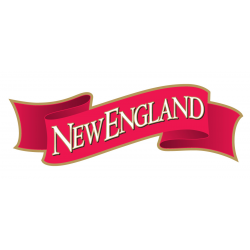
For our 2024 rankings, the research team at Nursing Schools Almanac collected data on nearly 3,000 nursing schools and campuses throughout the United States. We included the following states within our New England rankings: Connecticut, Maine, Massachusetts, New Hampshire, Rhode Island, and Vermont. We evaluated each nursing school in the region on three dimensions:
- The institution’s academic prestige and perceived value
- The breadth and depth of nursing programs offered
- Student success, particularly on the NCLEX licensure examination
We then combined these assessments into an overall score and ranked the schools accordingly. For a detailed description of our assessment methodology and dimension weights, please see here.
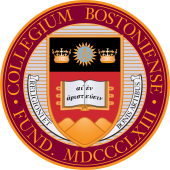
#1: Boston College
The William F. Connell School of Nursing is geared towards global diversity and social justice. The college’s nursing students enjoy a liberal arts education and receive a range of cultural healthcare perspectives, with access to six international locations. Approximately 100 BSN and 40 MSN students graduate from the school’s prelicensure programs each year. BSN students have maintained a strong 94% NCLEX pass rate over the past decade, while direct entry MSN students scored a perfect 100% pass rate in seven of the past ten years. The school offers a wide range of graduate programs, including certified registered nurse anesthetist (CRNA) and pediatric or psychiatric nurse practitioner (NP) options.
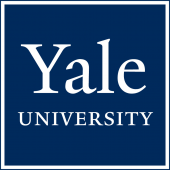
#2: Yale University
One of the first university schools to prepare nurses under an educational rather than apprenticeship program, Yale School of Nursing has educated health professionals since 1923. YSN maintains a consistently stellar NCLEX pass rate of 94-98% in its entry-level MSN program, and the school’s MSN and DNP offerings are both highly ranked by U.S. News & World Report. The university’s 400 nursing students interact with over 100 faculty members and 1,000+ preceptors focused solely on graduate nursing education. Yale is also one of the top recipients of nursing research funding from the National Institutes of Health, averaging $2.8 million annually in grants over the past decade.
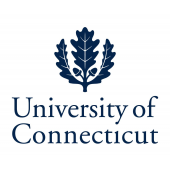
#3: University of Connecticut
Founded in 1942, UConn’s School of Nursing is the only research-focused nursing university in New England. The school has earned an NLN Center of Excellence designation and ranks among the top twenty public universities in the United States. Moreover, its Homer D. Babbidge Library is considered among the nation’s thirty best research resources, housing over 2.5 million volumes in its ever-expanding database. The School of Nursing provides bachelor’s, master’s, and doctoral degree programs. UConn graduates over 200 students each year from its BSN programs, which include a traditional four-year offering on the Storrs campus and accelerated pathways in four cities. Collectively, these BSN students have achieved a strong NCLEX pass rate of 93% over the past decade.
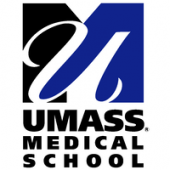
#4: University of Massachusetts Medical School
UMass Medical School is consistently ranked by U.S. News & World Report as one of the leading medical schools in the nation for primary care education. UMMS’s graduate school of nursing, accredited by the Commission on Collegiate Nursing Education, offers master’s degrees, post-master’s certificates, and doctoral degrees. It stands out as the only publicly funded nursing school in the commonwealth with a sole focus on graduate education. It is no surprise, then, that their direct entry MSN program has boasted an exceptional NCLEX pass rate of 94% over the past decade.
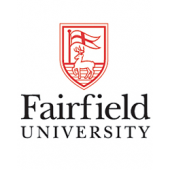
#5: Fairfield University
Fairfield University’s MSN and DNP programs are consistently ranked among the best in the nation by U.S. News & World Report. Their Master’s in Nursing Leadership program has also been recognized for its excellence by the American Association of Colleges of Nursing. The Marion Peckham Egan School of Nursing & Health Studies also offers both traditional and accelerated BSN tracks for undergraduate students. Prelicensure BSN graduates have passed the NCLEX exam at approximately a 90% first-try rate over the past decade.

#6: Northeastern University
Northeastern’s School of Nursing, part of the Bouvé College of Health Sciences, provides students broad interaction across Bouvé’s entire faculty. The school maintains a strong focus on research and an interdisciplinary approach to healthcare. Indeed, Northeastern was designated an NLN Center of Excellence in 2013 for enhancing student learning and professional development. Prelicensure students perform very well on the NCLEX exam. The school’s BSN program posted a 91% pass rate over the past decade, while its direct entry MSN program scored a phenomenal 96% pass rate over that time period. Northeastern also offers an online RN-to-BSN program, an MSN curriculum with six nurse practitioner specialties, two doctoral nursing degrees (PhD and DNP), and a nurse anesthesia program.
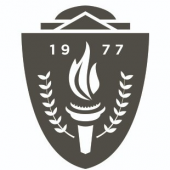
#7: MGH Institute of Health Professions
The MGH Institute of Health Professions is always innovating. In 2007, its School of Nursing was one of the first four institutions in the country to create an accredited DNP program. The school introduced a holistic Mind Body Spirit program in 2011 and a Global Health Nursing certification program in 2013. More than 80% of the school’s faculty members possess a doctoral degree. MGH Institute students perform very well on licensure and certification exams. Prelicensure BSN students have achieved an 87% first-time NCLEX pass rate over the past decade, while their counterparts in the direct entry MSN program scored a 91% first-time pass rate over that time period. Advanced practice students perform similarly well on their APRN certification exams.
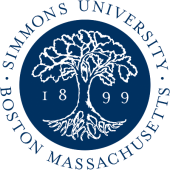
#8: Simmons University
Simmons’s low student-to-faculty ratio allows it to concentrate on strong, clinically based baccalaureate, master’s, post-master’s, and doctoral programs in nursing. Simmons students can also take advantage of Boston’s Longwood Medical Area, which features 21 renowned medical and academic institutions in their immediate backyard. The school graduates approximately 200 students annually from its prelicensure BSN program, with a strong 93% NCLEX pass rate over the past decade. Simmons’s direct entry MSN program graduates an additional 30-50 students annually. It has boasted a phenomenal 98% NCLEX pass rate over the past decade, with six out of ten cohorts scoring a perfect 100% pass rate.
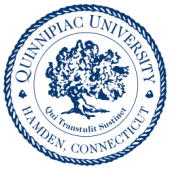
#9: Quinnipiac University
With a 12:1 student-to-faculty ratio that beats the national average of 15:1, Quinnipiac University allows students closer interaction with faculty. USA Today has named Quinnipiac one of the top ten places to earn a nursing degree in the country. The school’s flagship bachelor of science in nursing (BSN) program graduates well over 100 students annually from its traditional four-year pathway. Another 50 students graduate from the accelerated BSN program each year. Quinnipiac students have passed the NCLEX exam at a solid 90% rate over the past decade, including an impressive 93% pass rate for the accelerated BSN program. Quinnipiac also offers an online BSN for registered nurses and a full slate of graduate degrees and certificates.
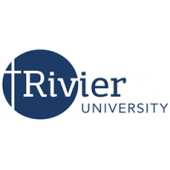
#10: Rivier University
Rivier University’s ASN, BSN, MSN, post-master’s certificate, and DNP programs are all accredited by the Accreditation Commission for Education in Nursing. Rivier students consistently perform well on licensure and certification tests. For example, ASN students have passed the NCLEX exam at a 92% rate over the past four years, while the first two BSN graduating classes scored a collective 99% NCLEX pass rate. MSN students have also consistently scored an 89-92% pass rate on both the FNP and PMHNP certification exams. All of these scores far exceeded the respective national averages. Rivier’s undergraduate programs are noted for their flexibility: students can pursue a part-time evening ASN, a traditional four-year BSN, or a flexible online RN-to-BSN pathway.
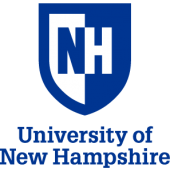
#11: University of New Hampshire
The Department of Nursing at UNH’s College of Health and Human Services offers several nursing pathways including a traditional four-year BSN degree, a direct-entry MSN program, an MSN degree with three tracks, and an online DNP program. Students from the traditional BSN program have scored a 94% NCLEX exam pass rate over the past eight years, while their counterparts in the direct-entry MSN program have achieved a 96% pass rate over the same time period. The MSN curriculum offers specializations in clinical nurse leader, evidence-based nursing, and family nurse practitioner. The school also offers post-master’s certificates in family nurse practitioner and psychiatric mental health.
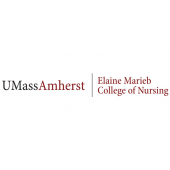
#12: University of Massachusetts Amherst
The Elaine Marieb College of Nursing at UMass Amherst was the first in the state to offer a DNP program and among the first to offer a publicly supported PhD program. The online MSN program is also consistently ranked among the top dozen in the nation by U.S. News & World Report. UMass Amherst offers a breadth of graduate options including three MSN tracks (clinical nurse leader, nursing education, nursing studies), three DNP nurse practitioner specialties (adult-gerontology primary care, family, psychiatric-mental health), and two other DNP programs (public health nurse leader, post-master’s completion). At the undergraduate level, the College of Nursing offers a traditional baccalaureate program, an accelerated BSN for non-nursing degree-holders, and an online RN-to-BSN pathway. Over the past decade, prelicensure students have passed the NCLEX exam at an 89% rate on their first attempt, including a 93% pass rate in 2020. UMass Amherst’s recently renovated facilities include a nursing simulation lab with five state-of-the-art rooms, a 16-hospital-bed area, and two clinical exam rooms.
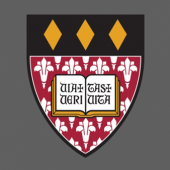
#13: Regis College
The Richard and Sheila Young School of Nursing at Regis College has received three consecutive NLN Center of Excellence designations since 2008. With small class sizes and four high-tech simulation labs, the school provides its students experience-oriented nursing education. Enrollees in the direct entry MSN program have passed the NCLEX licensure exam at a stellar 96% rate over the past decade. The school also offers a traditional four-year BSN, an RN-to-BSN program with two pathways (non-nursing bachelor’s, no bachelor’s), a postlicensure MSN program with ten specialty tracks (five in leadership, five for nurse practitioners), and a DNP program that is delivered both on campus and online.
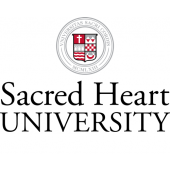
#14: Sacred Heart University
Drawing from its Catholic traditions, Sacred Heart University’s College of Nursing places a strong focus on community and service. Its state-of-the-art laboratory, furnished with a high-tech patient simulation system, lets students practice in a realistic and risk-free environment. Smaller classes and hands-on experience have helped the college’s BSN students to pass the NCLEX licensure exam at an impressive 95% first-try rate over the past decade. Sacred Heart also offers several graduate nursing programs, including MSN specializations for aspiring clinical nurse leaders, nurse managers, nurse educators, and family nurse practitioners.
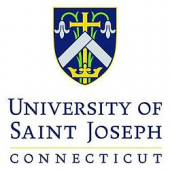
#15: University of Saint Joseph
A tight student-to-faculty ratio of 8:1 allows the USJ School of Health & Natural Sciences to provide students with intensive personal attention and guidance. It’s no wonder, then, that USJ routinely graduates BSN students with an NCLEX pass rate of 90% or higher. Interestingly, the traditional BSN is only available to women, while the accelerated second-degree BSN and RN-to-BSN programs are available to men as well. In addition to FNP master’s and online DNP programs, USJ also offers a post-master’s certification for psychiatric-mental health nurse practitioners.
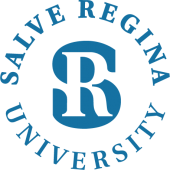
#16: Salve Regina University
The Department of Nursing at Salve Regina strives to develop nurses that are liberally educated and ethically grounded. There is a heavy emphasis on service learning: as part of their studies, students serve in soup kitchens, the YMCA, senior centers, legislative committees, free clinics, or the state food bank. Graduating BSN students have passed the NCLEX licensure exam at approximately a 90% rate over the past decade. Salve Regina also offers a joint bachelor’s / master’s program that confers a master’s degree in healthcare administration and management. The university’s Center for Adult Education in Warwick conducts a part-time BSN-to-DNP program, which awards an MSN degree with FNP focus as well as the terminal doctoral degree.
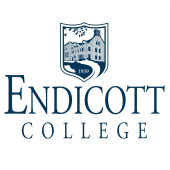
#17: Endicott College
Fully equipped laboratories, intensive clinical experiences, and small class sizes are several of the benefits that Endicott nursing students enjoy. A typical nursing class has between 10 and 36 students, and clinical groups average seven students per instructor. The BSN curriculum includes a minimum of 920 clinical practice hours, for which the school has an affiliation with 60 local healthcare facilities. In the final semester, an experienced preceptor mentors each student during a 144-hour internship. This hands-on instruction has helped Endicott’s BSN graduates pass the NCLEX exam at an 87% rate over the past decade. Graduate nursing students can choose from Endicott’s four MSN specializations, three post-master’s certificates, and a nursing PhD program.
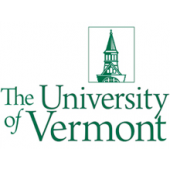
#18: University of Vermont
Viewing nursing as a science and an art, University of Vermont’s Department of Nursing lays heavy emphasis on behavioral, natural, and nursing sciences. The school integrates interdisciplinary education with clinical experience and gives students an opportunity to study public health in international locations. Its BSN students have averaged a 92% first-time pass rate on the NCLEX licensure examination since 2015, including a stellar 99% pass rate in 2017. UVM’s graduate nursing programs include an MSN degree with a clinical nurse leader focus, a DNP curriculum with two nurse practitioner tracks (adult-gerontology and family), and a unique direct-entry pathway for DNP students with a bachelor’s degree or higher in a non-nursing discipline.
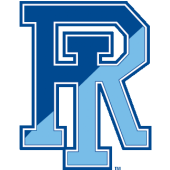
#19: University of Rhode Island
Nestled in the university’s 1,200-acre campus, URI’s School of Nursing offers students the best of New England tradition and coastal charm. Small classes and a concentration on interdisciplinary partnerships and research service are what draw 850 undergraduates to enroll here each year. Graduates of the flagship BSN program have averaged an 87% first-time pass rate on the NCLEX licensure exam over the past decade, including a 91% pass rate over the past three years. The school also provides an online BSN for registered nurses, an MSN program with five specializations, a DNP degree with post-BSN and post-MSN entry points, and the state’s only nursing PhD program.
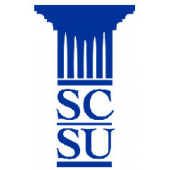
#20: Southern Connecticut State University
SCSU’s Department of Nursing was established in 1969 with a graduating class of 13 students. Today, nursing is among the most popular majors at SCSU: the department graduates approximately 100 BSN students each year, and these aspiring nurses have passed the NCLEX exam at approximately a 90% rate. The Accelerated Career Entry program, in fact, has posted a cumulative 98% NCLEX pass rate over the past decade. Recent graduating classes of the family nurse practitioner MSN program have scored a perfect 100% pass rate on the American Academy of Nurse Practitioners exam.
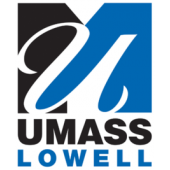
#21: University of Massachusetts Lowell
UMass Lowell’s graduate nursing program is consistently ranked among the best in the nation by U.S. News & World Report. The school boasts 100+ healthcare partners, 200+ students at clinical sites, and 100+ faculty publications. Graduates of the prelicensure BSN program have averaged an 87% first-time NCLEX pass rate over the past decade. Recently recognized by the National Hartford Center of Gerontological Nursing Excellence, UMass Lowell also offers fast-track BSN-to-MSN and MSN-to-DNP programs, as well as a master’s certification in adult-gerontology nursing.
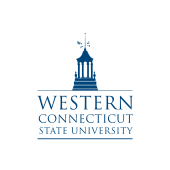
#22: Western Connecticut State University
WCSU’s nursing department annually graduates 40-50 students from its prelicensure BSN program. Impressively, these students have achieved an overall NCLEX pass rate of 97% over the past decade. The school’s popular RN-to-BSN program is offered on the main campus plus two satellite locations: Naugatuck Valley Community College and Norwalk Community College. The department also has MSN programs for certification as a nurse practitioner or a clinical nurse specialist, both of which are designed for part-time study with evening courses.
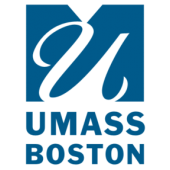
#23: University of Massachusetts Boston
UMass Boston is the ninth-largest nursing school in the country and proudly offers the only publicly supported nursing program in the greater Boston area. The school graduates a significant number of racially and ethnically diverse baccalaureate, master’s, and doctoral students. UMass Boston is known for its abundant nursing resources, including affiliations with 200+ healthcare organizations and an on-campus Center for Clinical Education and Research. The school graduates approximately 200 BSN students annually. It also provides MSN tracks for aspiring family nurse practitioners, adult-gerontology nurse practitioners, and adult-gerontology acute care clinical nurse specialists.
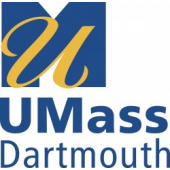
#24: University of Massachusetts Dartmouth
UMass Dartmouth educates more than 650 students across its undergraduate and graduate nursing programs. Its College of Nursing is the only one to offer MSN, DNP, and nursing PhD programs in Southeastern Massachusetts. At the undergraduate level, UMass Dartmouth has approximately 100 students in each prelicensure BSN class. These students passed the NCLEX exam at an 89% rate over the past decade, including a 98% rate in 2018. In addition to a traditional four-year curriculum, the school offers an accelerated second-degree BSN and an online RN-to-BSN program. Alongside faculty mentors, UMass Dartmouth students can delve into a broad range of research topics including cardiac illness, spinal cord injury, and global community health.
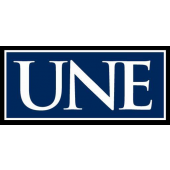
#25: University of New England
The University of New England educates more students in the healthcare field than any other institution in Maine. The Westbrook College of Health Professions offers two accredited nursing programs at the undergraduate level: a four-year traditional BSN and a 16-month accelerated BSN. These students are well prepared for the NCLEX-RN licensure examination: BSN graduates have averaged a 95% first-time NCLEX pass rate over the past five years, including a stellar 98% pass rate in 2018. The college also offers a 36-month DNP degree in nurse anesthesia, the only such program approved to operate in the state of Maine. With campuses in Portland and Biddeford, UNE is just minutes from Maine’s leading hospitals and clinics, providing students with valuable on-site experiences.
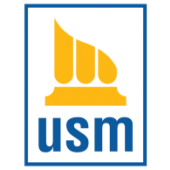
#26: University of Southern Maine
University of Southern Maine’s School of Nursing offers a host of flexible options for students seeking to enter or advance within the nursing profession. Its BSN program is conducted on both the Portland and Lewiston-Auburn campuses. An accelerated BSN and hybrid RN-to-BSN program are also available at the undergraduate level. Each year, the school graduates approximately 150 students that are eligible to sit for the NCLEX-RN exam. These students have passed the licensure test at an 88% rate over the past decade, significantly exceeding the national average. USM’s graduate nursing curriculum includes five MSN specializations and a DNP program that conducts all coursework online.
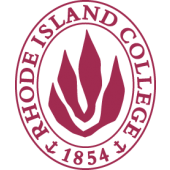
#27: Rhode Island College
The Zvart Onanian School of Nursing at Rhode Island College houses the largest baccalaureate nursing program in the state, including traditional BSN, accelerated BSN, and RN-to-BSN tracks. Graduates typically pass the NCLEX-RN licensure examination at a rate of 93-96% on the first try, well above state and national averages. At the graduate level, RIC offers a DNP program with two tracks (nurse anesthesia and post-master’s), three MSN specializations, and four certificate of graduate study options. Located in the Providence metropolitan area, the college campus is within five miles of several major state healthcare institutions.
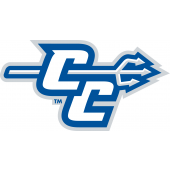
#28: Central Connecticut State University
Central Connecticut State University focuses primarily on undergraduate nursing education, offering a traditional four-year BSN and an RN-to-BSN track. The school’s nursing department is committed to a rigorous curriculum: it has a well-furnished learning center, encourages global diversity, and does not offer any accelerated programs. Four-year BSN students have passed the NCLEX exam at an 81% rate since the inaugural graduating class of 2012, and many have taken advantage of the school’s overseas study opportunities. CCSU also offers a doctor of nurse anesthesia practice (DNAP) degree which features a May cohort for entry-level candidates and an August cohort for post-master’s students.
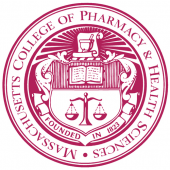
#29: Massachusetts College of Pharmacy and Health Sciences
Graduates from Massachusetts College of Pharmacy and Health Sciences are the #1 salary earners in New England, according to the U.S. Department of Education. Spread across three campus locations – Boston, Worcester, and Manchester – MCPHS is one of the few private universities in the country specializing solely in the education of healthcare professionals. Nursing students receive a broad-based education that prepares them well for licensure exams and future practice. For example, BSN students at the school’s Worcester and Manchester campuses have both averaged a 92% NCLEX pass rate over the past decade. Graduate nursing students can choose from two MSN nurse practitioner tracks and a DNP program, all offered 100% online.
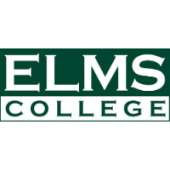
#30: College of Our Lady of the Elms
Elms College’s Department of Nursing graduated its first class in 1982. In 2013, it was reorganized into the School of Nursing and became the first school at Elms College. The School of Nursing provides entry-level, degree completion, and advanced preparation nursing programs. Specific degree pathways include traditional and accelerated BSN programs, an MSN in nursing education or management, a dual-degree MSN/MBA track, and several degree completion options for registered nurses. In 2014, Elms College introduced a DNP program with specializations as a family nurse practitioner or an adult-gerontology acute care nurse practitioner.

#31: Saint Joseph’s College of Maine
The nursing curriculum at Saint Joseph’s College of Maine is based on the school’s philosophy of Christian humanism. The undergraduate nursing major builds upon a foundation of liberal arts, basic and applied sciences, and behavioral and social sciences. Students learn through clinical hours at established local hospitals and engage in community health nursing. Saint Joseph’s graduating class of 50-70 BSN students has achieved a 94% first-time NCLEX pass rate over the past five years. The college also offers flexible online graduate programs, including an MSN that can be combined for a dual degree with a master of health administration or a master of business administration. MSN students can select from six specializations including administration, education, and four nurse practitioner tracks. Saint Joseph’s College also offers the nurse practitioner specializations as post-master’s certificates.
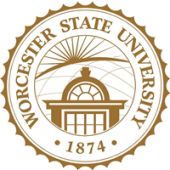
#32: Worcester State University
The Dr. Lillian R. Goodman Nursing Department at Worcester State University has educated nurses for forty years. The department provides three undergraduate nursing tracks: traditional BSN, RN-to-BSN, and LPN-to-BSN. Prelicensure BSN students have passed the NCLEX exam at a phenomenal 96% rate over the past decade, including a perfect 100% pass rate in three of the past five years. Worcester State’s MSN program is offered in two fields: community / public health nursing and nursing education. Designed for flexible scheduling, it offers blended learning between face-to-face classes and online study. The school also provides a post-master’s certificate program in nursing education.

#33: Fitchburg State University
As the first public university in Massachusetts to offer a nursing program, FSU has a long and distinguished history in nursing education. The school’s facilities include a well-equipped health assessment lab, a state-of the-art clinical simulation lab, and a home care lab. Over the past decade, an astonishing 95% of FSU’s prelicensure BSN students have passed the NCLEX exam on their first try. The university offers three BSN pathways: traditional, LPN-to-BSN, and RN-to-BSN. They also conduct an online MSN with a focus on forensic nursing, designed for RNs who wish to pursue advanced leadership positions in the healthcare system.

#34: Maine College of Health Professions
Maine College of Health Professions is the only institution in the state to offer LPN, ADN, and RN-to-BSN programs. The one-year LPN certificate is MCHP’s newest offering in nursing. Graduates boast a perfect 100% first-time NCLEX-PN pass rate since the program’s recent inception. The two-year ADN curriculum prepares students to work in a breadth of healthcare settings including maternal care, pediatrics, long-term care, critical care, surgery, rehabilitation, and mental health. Students gain experience through MCHP’s state-of-the-art simulation laboratory as well as clinical rotations with a low student-to-faculty ratio. Over the past decade, ADN graduates have achieved a strong 91% first-time NCLEX-RN pass rate. The RN-to-BSN program offers courses in a flexible hybrid format of online and onsite delivery, allowing nurses to continue working while pursuing their baccalaureate degree.
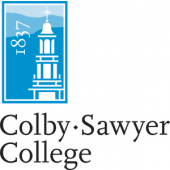
#35: Colby-Sawyer College
Colby-Sawyer’s School of Nursing & Health Sciences offers several degree pathways. The traditional BS in Nursing program facilitates clinical rotations as early as sophomore year. Through its affiliation with Dartmouth-Hitchcock Medical Center, the school provides students attentive laboratory and clinical mentoring by established nurses that are hired on a contract basis to teach alongside faculty. Graduates have maintained an NCLEX exam pass rate of 93% or higher for twelve consecutive years, including several recent cohorts with a perfect 100% pass rate. For licensed nurses, the college offers an RN-to-BS completion program and an MSN degree with three tracks: clinical nurse leader, nursing education, and nursing management & executive leadership.
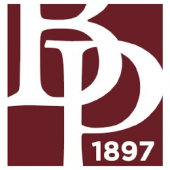
#36: Bay Path University
Bay Path University is an independent nonprofit institution that has educated students since 1897. The school serves more than 3,000 individuals today, including hundreds enrolled in the nursing programs. The American Women’s College of Bay Path University conducts an RN-to-BSN degree completion program with coursework that can be completed entirely online. Applicants must hold an active license and be in good standing as a registered nurse. If so, a minimum of 30 transfer credits and possibly up to 84 transfer credits may be applied towards the BSN degree. Depending on the number of transferrable credits, students can expect to complete the degree in 18-24 months. Bay Path University also offers an online DNP program through its graduate division. The DNP curriculum offers both BSN and MSN entry points, and it prepares graduates to serve as family nurse practitioners. Both the RN-to-BSN and DNP programs are accredited by the Commission on Collegiate Nursing Education.
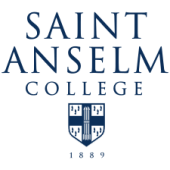
#37: Saint Anselm College
In 1949, Saint Anselm College broke its sixty-year tradition and allowed courses for female nursing students in the (then) male-only school. Saint Anselm launched a coed nursing department in 1952, which was a precursor to the entire college becoming coed in 1974. It’s no wonder, then, that its nursing program is one of the most selective and respected in New England. BSN graduates have passed the NCLEX exam at a 96% rate over the past decade, well above state and national averages. Along with the four-year baccalaureate, the department also offers an RN-to-BSN completion program and a continuing nursing education program that organizes regional multi-day conferences.
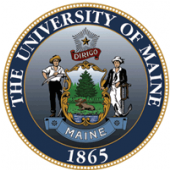
#38: University of Maine
UMaine was one of the state’s first universities to create a baccalaureate program for nurses in 1939. The School of Nursing developed its first graduate program in 1992, and has since dispersed over 140 FNPs to rural primary care and specialty practices throughout the state. UMaine offers individualized MSN programs of study, a certificate of advanced study in several nursing fields, and a graduate certificate in nursing education. In the undergraduate ranks, UMaine graduates 70-90 BSN students each spring who have achieved a solid 87% NCLEX exam pass rate over the past decade. Students receive their clinical experiences in acute care facilities like Eastern Maine Medical Center, St. Joseph’s Hospital, and the Dorothea Dix Psychiatric Center, as well as rural community hospitals.
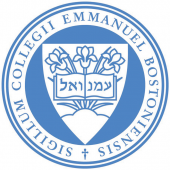
#39: Emmanuel College
Located in the heart of the Longwood Medical Area, Emmanuel College has a niche focus on educating registered nurses. Emmanuel’s degree completion program combines core baccalaureate courses in English, social science, history, and religion with an advanced nursing curriculum, culminating in a BSN degree. For graduate students pursing an MSN or post-master’s certificate, the college offers two tracks. Nurse educators can prepare for certification by the NLN, and nurse administrators can prepare for certification by the American Nurses Credentialing Center.
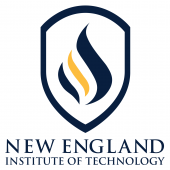
#40: New England Institute of Technology
NEIT was the first Rhode Island school to launch a 100% online RN-to-BSN program. The school also offers an associate degree in nursing that can be completed fulltime in as little as 21 months. Graduates of the ADN program are eligible to sit for the NCLEX exam, and they’ve passed it at an impressive 94% first-try rate over the last four years. ADN graduates are then encouraged to enroll in the RN-to-BSN completion program while they work as registered nurses. Both programs are among the newest offerings in the state, and both are fully accredited by the Accreditation Commission for Education in Nursing.
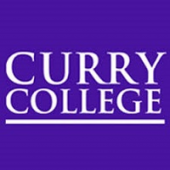
#41: Curry College
Curry College was the first nursing program in the state of Massachusetts to earn accreditation from the Commission on Collegiate Nursing Education. The School of Nursing offers three BSN pathways (traditional, accelerated second degree, RN-to-BSN) and two MSN specializations (nursing administration, nursing education). Curry College’s location in the Boston metropolitan area enables students to experience dynamic, hands-on learning at some of the best medical facilities in the world. Clinical rotations begin during sophomore year at a wide range of urban and suburban institutions, with rotations that include pediatrics, maternity care, and mental health. Curry College graduates approximately 100 prelicensure BSN students each year. These individuals have averaged an 87% NCLEX pass rate over the past decade, including a stellar 97% pass rate in 2018.
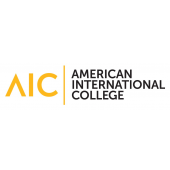
#42: American International College
American International College opened in 1885 as a school for international immigrants. The institution became coed in 1892, making it one of the first colleges in the region to educate women. AIC offers BSN and RN-to-BSN courses for undergraduate students. Graduates of the traditional BSN program have passed the NCLEX exam at an 86% rate over the past decade. The college introduced its MSN program in 2005, which offers a hybrid of classroom and online modules. In fact, two-thirds of the content is available online, providing much-needed flexibility for working nurses.
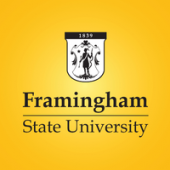
#43: Framingham State University
The Nursing Department at Framingham State offers a single undergraduate program in nursing, which is only available to registered nurses pursuing their BSN completion. At the graduate level, Framingham State has MSN concentrations in nursing education and nursing leadership. MSN-educated nurses can also complete a post-master’s certificate in either area. Graduate students can pursue several specialty certifications at the end of their studies. These include the ANCC’s Nurse Executive certification, a Clinical Nurse Leader certification offered by the Commission of Nurse Certifications, and the NLN’s Certified Nurse Educator certification.
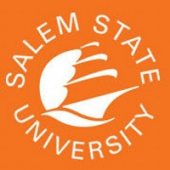
#44: Salem State University
The School of Nursing at Salem State University offers four BSN pathways (traditional, accelerated, LPN entry, RN entry) and a breadth of MSN options. The BSN curriculum blends academic and experiential learning with clinical practicums in adult health, maternal-child health, and community settings. The accelerated BSN is a 15-month pathway for students who hold a baccalaureate degree in a non-nursing field. The LPN-to-BSN program is similarly streamlined, requiring just four semesters and a summer session to complete. Across these prelicensure programs, graduates have achieved an 83% first-time NCLEX pass rate over the past decade. Salem State’s MSN program has three tracks: adult-gerontology primary care nurse practitioner, nursing education, and nursing leadership in health systems. Designed for working professionals, the MSN is delivered in an evening and hybrid format.
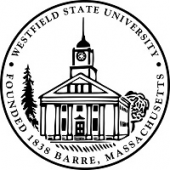
#45: Westfield State University
The BSN program at Westfield State University is part of the Nursing & Allied Health Department. The traditional prelicensure BSN curriculum includes coursework across both the sciences and the liberal arts. Sample courses include Community Health Nursing, Pathophysiology & Pharmacology, and Principles of Sociology. WSU’s program has several distinguishing features including small class sizes, a formal one-year student-to-student mentorship program, a patient simulation laboratory with video and voice recording equipment, and a capstone preceptorship program that allows students to work at healthcare organizations during their last semester under RN supervision. The university also offers a hybrid RN-to-BSN program that allows students to take classes at either Westfield or Springfield Technical Community College.
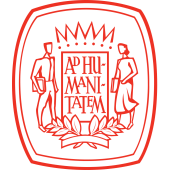
#46: University of Hartford
UHart’s College of Education, Nursing and Health Professions (ENHP) chiefly offers graduate programs in nursing. The college endeavors to create flexible programs for adult learners, facilitating advanced study for existing nurses. ENHP offers a part-time MSN with a focus on nursing education, nursing management, or public health, as well as a post-master’s certificate in teaching for nurses. While the nursing program does not accept freshmen, there is an RN-to-BSN degree completion option available for existing registered nurses on a part-time basis.
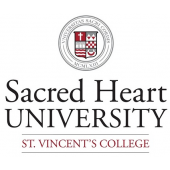
#47: St. Vincent’s College
Founded in 1905 as the St. Vincent’s Hospital Training School for Nurses, St. Vincent’s College has graduated generations of nurses and other healthcare professionals. Through its close relationship with St. Vincent’s Medical Center and other medical facilities in the region, the college provides students valuable clinical rotations. St. Vincent’s College entered a new phase of its existence in July 2018, when the college joined Sacred Heart University. The combined entity offers students dynamic education pathways in the evolving healthcare industry, all rooted in a commitment to service and social justice. St. Vincent’s ADN students have scored a strong 90% pass rate on the NCLEX licensure exam over the past decade.
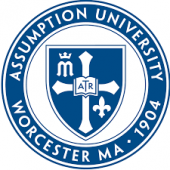
#48: Assumption University
The Froelich School of Nursing at Assumption University offers a direct-admission BSN program that prepares students to provide high-quality, patient-centered healthcare. The school’s direct-admission structure allows applicants to begin the nursing program the same year they are admitted. Students complete rigorous coursework on foundational and nursing topics. They also conduct clinical experiences in acute care and community-based environments. Assumption University is currently constructing a new nursing facility with a state-of-the-art clinical skills and simulation laboratory, intended to augment students’ acute care and community-based experiences. BSN graduates are prepared to sit for the NCLEX licensure examination.
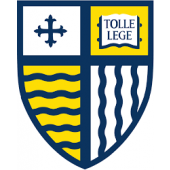
#49: Merrimack College
Merrimack College was founded in March 1947 as the Augustinian College of the Merrimack Valley. Nearly 22,000 students have graduated from Merrimack over its seventy-year history. The School of Health Sciences offers a prelicensure BSN program that combines rigorous coursework with local healthcare partnerships. The curriculum incorporates hands-on learning opportunities so that students become safe, compassionate caregivers as well as leaders in the nursing profession. Graduates are prepared to sit for the NCLEX-RN licensure examination. Upon successful completion, they can pursue careers in a variety of healthcare settings including acute care centers, ambulatory and outpatient clinics, community centers, hospitals, public health services, and skilled nursing facilities.
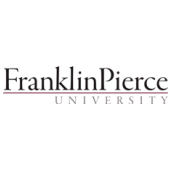
#50: Franklin Pierce University
Franklin Pierce’s RN-to-BSN degree completion program is specifically designed for registered nurses that need a flexible schedule to manage work and other commitments. Courses are either offered through an in-class / online hybrid model or 100% online. The MSN program at Franklin Pierce was fully accredited by the ACEN in 2014. Like the BSN program, it caters to existing nurses, offering three tracks based on educational background: BSN, ADN plus non-nursing baccalaureate, or ADN only. MSN students can specialize in nursing education or nursing leadership.
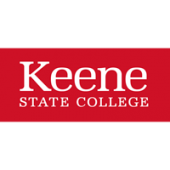
#51: Keene State College
Keene State College developed its nursing program to meet the increasing demand for baccalaureate-educated nurses in the state of New Hampshire. Conducted through the college’s School of Sciences, Sustainability, and Health, the BSN program admitted its first class of prelicensure students in 2012. Keene State College has witnessed a significant rise in licensure test scores over the past several years, culminating with a perfect 100% NCLEX pass rate for the class of 2019. Nursing students work one-on-one with a preceptor during the final semester of senior year to prepare for the transition to clinical practice.

#52: Husson University
Husson University’s School of Nursing is part of the College of Health and Education. Nursing students can choose from several pathways including a traditional BSN, an RN-to-BSN track, and either an MSN degree or a post-master’s certificate for aspiring family and community nurse practitioners. The traditional BSN program features a state-of-the art learning resource laboratory on the University campus, along with high-fidelity and hybrid simulation opportunities. Over the past ten years, BSN graduates have scored an 84% pass rate on the NCLEX-RN licensure examination. The RN-to-BSN track, MSN degree, and post-master’s certificate all make significant use of online course delivery, so that students can continue working as they complete their education.
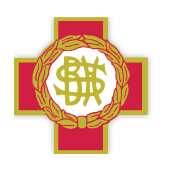
#53: Brockton Hospital School of Nursing
An integral part of Signature Healthcare, Brockton Hospital School of Nursing is the only hospital-based nursing program in the state of Massachusetts. Originally established in 1897, BHSN has graduated over 2,800 nurses throughout its storied history. The school strives for diversity and offers several nursing diploma pathways, including a two-year day program and a four-year part-time program on weekends and evenings. Approximately 88% of BHSN graduates have passed the NCLEX-RN licensure exam on their first try over the past decade. Additionally, the school’s affiliation with Fisher College allows these graduates to transition seamlessly into Fisher’s RN-to-BSN program.
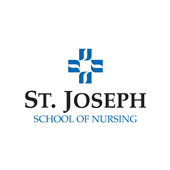
#54: St. Joseph School of Nursing
St. Joseph School of Nursing traces its roots back to the opening of Nashua’s St. Joseph Hospital in May 1908. The school launched its current ASN degree program in 2005. St. Joseph offers two ASN pathways: a traditional two-year curriculum and a one-year LPN-to-ASN bridge for practical nurses. Graduates of the program have enjoyed strong outcomes. For example, St. Joseph students have passed the NCLEX licensure exam at an 85% rate over the past decade. They have also enjoyed program completion rates of 85-90% and job placement rates of 90-100%. Graduates who wish to pursue a BSN degree can take advantage of the school’s articulation agreements with Rivier University, Saint Anselm College, Southern New Hampshire University, and Walden University.
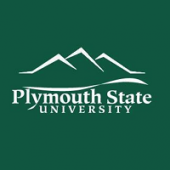
#55: Plymouth State University
The Department of Nursing at Plymouth State University prepares nurses to deliver patient-centered care as members of an interdisciplinary team, with an emphasis on teamwork, evidence-based practice, quality improvement, safety, and informatics. The BSN curriculum covers nine semesters of general education courses, required nursing courses, and electives. Sample courses include Global Health & Population-Based Healthcare; Leadership, Collaboration, & Quality Health Care Systems; and Nursing Care of Children. Students complete clinicals at local hospitals, with the option to participate in the PSU Nurses Association or the Sigma Theta Tau International nursing honor society. Graduates have achieved a 91% NCLEX exam pass rate over the past four years.

#56: Vermont Technical College
Vermont Tech has a hands-on curriculum that employs a unique career ladder model. Students can progress sequentially through three stages in their nursing education: an LPN certificate, an ADN degree leading to RN licensure, and an online RN-to-BSN baccalaureate completion program. Since 2012, 85% of Vermont Tech’s LPN students and a phenomenal 96% of its ADN students have completed their respective programs. These graduates perform extremely well on their licensure exams. The school’s LPN students have posted a stellar 97% NCLEX-PN pass rate over this time period, a full 13 percentage points above the national average. ADN students passed the NCLEX-RN exam at a solid 87% rate since 2012, also several points above the national average.
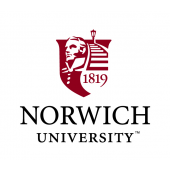
#57: Norwich University
The Norwich undergraduate nursing program started in 1961 with a two-year associate degree. An RN-to-BSN program was added in 1978, and Norwich graduated its first class of four-year bachelor’s degree students in 1999. Today, the Norwich University School of Nursing offers a traditional BSN degree and a completely online MSN program. Nursing students at Norwich gain clinical experience from the school’s affiliations with Dartmouth-Hitchcock Medical Center, University of Vermont Medical Center, several rural hospitals, and a variety of community settings.
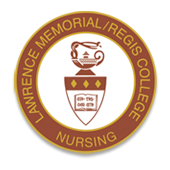
#58: Lawrence Memorial / Regis College
In 1998, Lawrence Memorial Hospital School of Nursing collaborated with Regis College to design and launch a new ADN program. The joint curriculum awards an associate of science degree with a major in nursing. Clinical experiences are offered at major Boston teaching hospitals, suburban hospitals, long-term care facilities, and a variety of community, home care, and social service agencies. The program shares its campus with Lawrence Memorial Hospital and Courtyard Nursing Care Center, both affiliates of Hallmark Health. The Lawrence Memorial / Regis College ADN program produces 100+ newly minted nurses annually, with a strong NCLEX pass rate of 87% over the past decade. Graduates of the ADN program can pursue two different pathways to earn a BSN degree from Regis College.
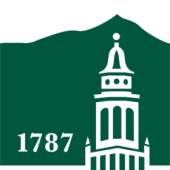
#59: Castleton University
Castleton University’s Nursing Department has long offered a CCNE-accredited baccalaureate program with two tracks: a traditional four-year prelicensure pathway and a three-year accelerated option for advanced standing and transfer students. Castleton’s nursing facilities include a virtual hospital and simulation lab that has eight medium-fidelity simulators, two pediatric simulators, and a medication dispensing unit. The student-to-faculty ratio in the virtual hospital is 8:1, allowing for concentrated and focused training. To complement its undergraduate program, Castleton University recently launched an online MSN program with two concentrations: nurse educator and clinical nurse leader. The university welcomed its inaugural MSN class during the spring semester of 2021.
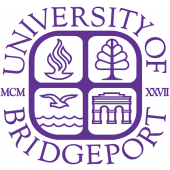
#60: University of Bridgeport
The University of Bridgeport began as the Junior College of Connecticut, the first two-year college in New England. Today, UB is a private four-year university that serves nearly 2,000 students. The School of Nursing has programs for individuals who are new to nursing and those seeking advancement opportunities in their current nursing career. Pathways include a traditional prelicensure BSN program, an accelerated second degree BSN, an online RN-to-BSN completion pathway, and an online MSN with a focus on leadership and education. The university also offers a preparatory pre-nursing curriculum that comprises prerequisite courses in natural and social sciences, the humanities, and mathematics. The BSN pathways prepare students for advanced nursing education or positions in hospitals, clinics, and physicians’ offices. The MSN program is designed for professional RNs seeking leadership positions in all healthcare settings.

#61: Greater Lowell Technical High School
Greater Lowell Technical High School offers a practical nursing program that is fully approved by the Massachusetts Board of Registration in Nursing and fully accredited by the Council on Occupational Education. The 40-week fulltime program requires 1,097 hours of classroom instruction and 540 hours of clinical experience. The clinical experience allows students to apply classroom theory within various community healthcare facilities. Graduates are eligible to take the NCLEX-PN licensure examination. Greater Lowell Technical High School graduates approximately 70 LPN students annually, and these students have achieved an excellent 93% first-time NCLEX pass rate over the past decade. The graduating class of 2018 also enjoyed a 97% job placement rate.
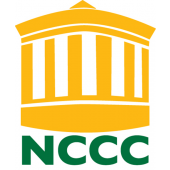
#62: Northwestern Connecticut Community College
Northwestern Connecticut Community College (NCCC) has been ranked Connecticut’s number one community college for three years in a row by WalletHub. The school’s ADN program is part of the Connecticut Community College Nursing Program, which includes six ADN programs across the state’s community college system. This four-semester, 68-credit program of study prepares students to take the NCLEX-RN licensure examination. Over the past eight years, NCCC graduates have achieved a strong 91% first-time pass rate on the exam. Most graduates assume the position of registered nurse at local healthcare providers, including hospitals, clinics, and long-term care facilities.
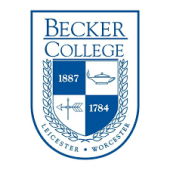
#63: Becker College
Becker College was founded in 1784 as Leicester Academy. It was the first nonsectarian academy in New England to accept female students. Today, Becker College is a private career-focused institution that serves more than 2,000 students across dozens of degree programs. The School of Nursing and Health Sciences offers two pathways to an ADN degree (traditional, LPN advanced placement) and two pathways to a BSN degree (prelicensure, RN-to-BSN). Graduates of the ADN program have consistently performed exceptionally well on the NCLEX-RN licensure exam, earning a 95% first-time pass rate over the past decade. The first five graduating classes of the traditional BSN program have also done well, averaging an 89% NCLEX pass rate.
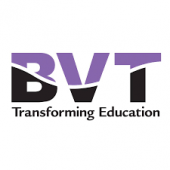
#64: Blackstone Valley Regional Vocational Technical High School
Blackstone Valley Regional Vocational Technical High School is a career-focused high school that prepares graduates for employment in the service, construction, and technology industries. BVT also has a nursing program for adults seeking careers in the healthcare industry. Accredited by the Accreditation Commission for Education in Nursing, the BVT practical nursing program requires 1,090 hours of coursework, laboratory exercises, and clinical experiences. The curriculum covers essential topics like caring for the elderly, community health, and new technologies. Upon completion of the program and passing the NCLEX-PN licensure examination, LPN graduates can pursue employment in acute care settings, long-term care facilities, home healthcare, and clinics. Over the past decade, Blackstone Valley Regional Vocational Technical High School’s LPN students have averaged an outstanding 96% first-time NCLEX pass rate.
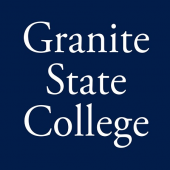
#65: Granite State College
Granite State College is part of the four-member University System of New Hampshire, which also includes Keene State College, Plymouth State University, and the University of New Hampshire. Serving students for nearly fifty years, Granite State offers associate, bachelor’s, and master’s degree programs that emphasize in-demand areas of study. The school’s nursing programs include an RN-to-BSN degree completion pathway and an MSN degree. The RN-to-BSN curriculum explores care for the aging population, genetics and genomics, and the U.S. healthcare system. The MSN program builds on the skills obtained in the BSN program, with two specializations available: healthcare education and healthcare leadership. Coursework for both programs can be completed 100% online. The Granite State College nursing programs are accredited by the Commission on Collegiate Nursing Education.

#66: Southern New Hampshire University
Southern New Hampshire University offers nursing education at the baccalaureate and master’s degree levels. Both options are open to students only with an unencumbered registered nursing license. Designed to maximize transfer credit for incoming students, the RN-to-BSN program features a flexible curriculum with no set class meeting times. The university’s accelerated RN-to-MSN pathway allows nurses first to earn the BSN degree and then to matriculate into the MSN curriculum, saving up to 2.5 months of time in the process. Specialty MSN tracks include family nurse practitioner, healthcare quality and safety, nurse executive leadership, nursing education, and population healthcare. Created to meet the needs of today’s busy nursing professionals, the SNHU nursing programs are conducted 100% online.
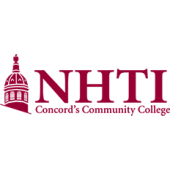
#67: NHTI, Concord’s Community College
NHTI’s nursing students enjoy an 8:1 student-to-faculty ratio in clinical settings. The college offers two associate degree pathways: a traditional two-year ADN program and a 12-month LPN-to-RN completion option. NHTI’s ADN graduates have passed the NCLEX licensure exam at a 90% rate over the past decade. The college also offers a unique Legal Nurse Consultant certificate program, which is approved by the American Bar Association. The program is designed for experienced RNs that want to combine their clinical expertise with specialized legal knowledge, enabling them to serve as consultants to the legal and healthcare professions.
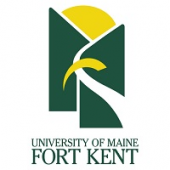
#68: University of Maine at Fort Kent
The University of Maine at Fort Kent offers traditional BSN, accelerated BSN, and online RN-to-BSN programs. Students in all programs have the opportunity to join the Student Nurses Organization or the Nursing Honor Society. They may also participate in a preceptorship; this service learning opportunity places the student in a one-on-one partnership with a registered nurse to guide practical application of their nursing skills. Students may choose the clinical site, professional role model, and specialty area of interest. Over the past decade, UMFK’s BSN graduates have achieved a solid 86% pass rate on the NCLEX-RN licensure exam.
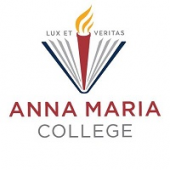
#69: Anna Maria College
The nursing program at Anna Maria College offers a four-year prelicensure BSN for entry-level students and an RN-to-BSN completion program for registered nurses. The prelicensure BSN program is 120 credit hours in length. Graduates have enjoyed an 85% pass rate on the NCLEX-RN licensure exam since the program’s inception. The RN-to-BSN pathway is designed for working nurses who already hold either an ADN or nursing diploma. The program’s flexible online curriculum is built on a foundation of holistic care with a powerful emphasis on multicultural and community nursing.
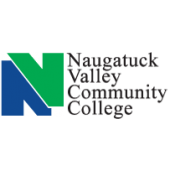
#70: Naugatuck Valley Community College
With more than 100 students enrolling annually, the AS degree in registered nursing is one of the five most popular programs at Naugatuck Valley Community College. The nursing department is one of six participants in the Connecticut Community College Nursing Program, which provides common curriculum and admissions requirements across institutions. NVCC students have enjoyed success on the NCLEX licensure exam, achieving a 94% average first-time pass rate over the past decade. The nursing program has also consistently delivered three-year graduation rates between 73% and 80%, as well as employment rates in the field between 91% and 100%. All three outcomes are very strong relative to peers. NVCC graduates can pursue further nursing education through CT-CCNP’s articulation agreements with a dozen RN-to-BSN programs and two RN-to-MSN programs.

#71: Diman Regional Vocational Technical High School
Diman Regional Vocational Technical High School hosts a highly regarded School of Practical Nursing. The school harnesses the unique potential of each learner by developing the theoretical and technical skills required for success as an entry-level LPN. Diman Regional’s practical nursing program is accredited by the Council on Occupational Education, and it has full approval from the Massachusetts Board of Registration in Nursing. The program typically graduates between thirty and sixty LPN candidates each year. These students have averaged a 93% first-time pass rate on the NCLEX-PN licensure exam over the past decade. In fact, the last two graduating classes scored a perfect 100% first-time NCLEX pass rate.
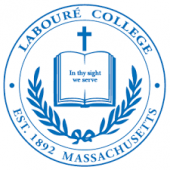
#72: Labouré College
The Labouré College nursing program allows graduates to begin their nursing employment two years earlier than a traditional four-year program. Students first complete an ADN program and pass the NCLEX-RN licensure examination to earn their RN credentials. The college’s ADN graduates have averaged a 74% first-time pass rate on the NCLEX exam over the past decade. Newly licensed RNs can then enroll in Labouré’s RN-to-BSN degree and complete their BSN coursework while they earn valuable work experience. Some students take a break from their studies and work for several years before returning to complete their BSN.
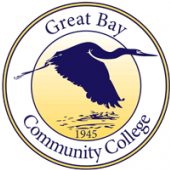
#73: Great Bay Community College
The ADN program at Great Bay Community College prepares students to provide direct care to clients in acute care, long-term care, and other structured settings. The two-year program includes instruction in communication, teamwork, professionalism, leadership, informatics, evidence-based practice, systems-based practice, patient-centered care, quality improvement, and safety. Clinical experiences are offered at a wide variety of times and locations, and students may complete the program on a full-time or part-time basis. Great Bay’s ADN graduates have enjoyed an excellent 93% pass rate on the NCLEX-RN licensure exam over the past decade.
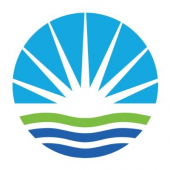
#74: Goodwin University
Goodwin University offers a breadth of nursing programs that span the associate, bachelor’s, and master’s degree levels. Students who are new to nursing can select from two career entry pathways: a traditional ADN and an accelerated BSN. The ADN program conducts a selective admissions process after applicants have completed all prerequisite coursework. Goodwin’s ADN graduates have averaged an 84% first-time NCLEX pass rate over the past decade. The accelerated BSN program is limited to applicants who hold a bachelor’s degree in a non-nursing field from a regionally accredited institution. The university also offers several online pathways for registered nurses to enhance their credentials, including an RN-to-BSN completion program and an MSN degree with two nurse practitioner tracks (family and psychiatric-mental health).
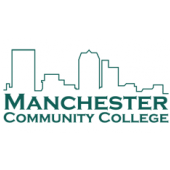
#75: Manchester Community College
Founded in 1945 as a technical school for returning veterans, Manchester Community College is a dynamic, student-centered, and accessible community college. The school’s ADN program provides students the flexibility to study on either a full-time (two years) or part-time (up to four years) basis. An advanced placement pathway is also available for LPNs currently licensed in New Hampshire. MCC’s nursing program boasts fantastic student outcomes, including a 76% completion rate, 96% NCLEX exam pass rate, and 100% job placement rate over the past five academic years. Graduates can pursue a BSN or MSN degree in a cost-effective manner, thanks to the college’s dual-enrollment partnerships with Franklin Pierce University, Granite State College, Saint Anselm College, and Southern New Hampshire University.

#76: Upper Cape Cod Regional Technical School
Upper Cape Cod Regional Technical School’s Division of Nurse Education offers an LPN program. Two tracks are available: a fulltime 40-week option conducted during the day, and a part-time 80-week option conducted during the late afternoon and evening. At the conclusion of the program, students receive a certificate of completion and sit for the NCLEX-PN licensure exam. The program graduates 40-60 students annually, with a 92% NCLEX pass rate over the past decade. Graduates are prepared to work in a variety of healthcare settings including acute care and community health. They can also matriculate directly into an ADN program, thanks to the school’s transfer agreements with Cape Cod Community College, Bristol Community College, and Quincy College.
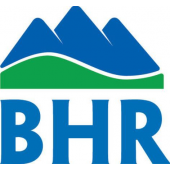
#77: Blue Hills Regional Technical School
Blue Hills Regional Technical School offers vocational programs in the areas of healthcare, science, and technology. The nursing program at Blue Hills offers an LPN pathway for post-secondary adults. This immersive fulltime program provides a rigorous combination of nursing theory and clinical practice in preparation for the NCLEX-PN national licensure examination. Students must attend classes for forty weeks from September to June, Monday through Friday. The program typically graduates 30-40 LPN candidates annually. These students have averaged an exceptional 95% first-time NCLEX pass rate over the past decade.
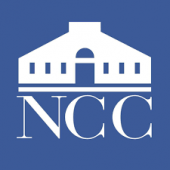
#78: Norwalk Community College
Founded in 1961, Norwalk Community College was the first public two-year college established in Connecticut. Students have access to dozens of programs offered across twelve academic departments. The Department of Nursing and Allied Health offers the Connecticut Community College Nursing Program, an innovative four-semester ADN program conducted at six Connecticut community colleges. Graduates are prepared to sit for the NCLEX-RN licensure examination, and upon successful completion, to seek employment at local hospitals, clinics, and physicians’ offices. Over the past three years, NCC’s ADN graduates have achieved an 88% first-time NCLEX pass rate and an 85% employment rate in the field. Both figures well exceed the college’s targeted benchmarks for student outcomes.
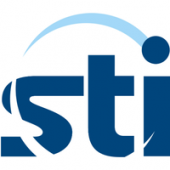
#79: Southeastern Technical Institute
The Southeastern Regional Vocational Technical School District operates a post-secondary technical institute with certified medical assistant and licensed practical nursing programs. These vocational programs combine classroom instruction, laboratory exercises, clinical experiences, and internship opportunities to prepare students for licensure or certification. The medical assistant program takes nine months to complete and boasts a 100% job placement rate. The practical nursing program requires ten months of study and generates equally impressive student outcomes. Approximately 30-50 LPN candidates graduate from the program each year. Over the past decade, these students have averaged a phenomenal 97% first-time pass rate on the NCLEX-PN licensure examination.
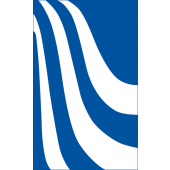
#80: Three Rivers Community College
Named for the region’s primary waterways – the Shetucket, Yantic, and Thames – Three Rivers Community College is a proud member of the Connecticut Community Colleges Nursing Program. Through this partnership, six of the state’s community colleges offer a standardized and innovative two-year ADN program. Existing LPNs can use an advanced placement option to enter the program as late as the third semester. Graduates can seamlessly continue their nursing education through CT-CCNP’s articulation agreements with a dozen RN-to-BSN programs and two RN-to-MSN programs. For example, Sacred Heart University accepts applicants into both programs. Three Rivers Community College has consistently been one of the state’s strongest performers on the nursing licensure exam, scoring a 94% first-time NCLEX-RN pass rate over the past decade.
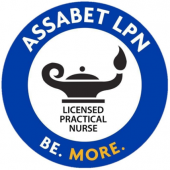
#81: Assabet Valley Regional Technical School
Assabet Valley Regional Technical School offers a ten-month fulltime certificate program in licensed practical nursing. The school accepts a new cohort of approximately forty LPN students annually, with daytime classes conducted five days per week from late August through June. Students are trained to provide direct patient care, including the administration of medications and treatments. They are also prepared to manage and delegate the nursing care provided by unlicensed personnel, particularly in long-term care settings. At the conclusion of their studies, graduates may pursue LPN licensure by sitting for the NCLEX-PN examination. AVRTS students have averaged an impressive 93% first-time NCLEX pass rate over the past decade. The school also promotes pathways for graduates to continue their education at the associate degree, bachelor’s degree, and even graduate level.
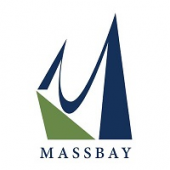
#82: MassBay Community College
The nursing program at MassBay Community College has two pathways for aspiring nurses: an LPN certificate and an ADN degree. The LPN program prepares students to join the workforce as practical nurses, assuming entry-level patient care positions in hospitals and skilled nursing facilities. The curriculum includes both classroom lectures and clinical practice, and it takes just ten months to complete. The ADN is a rigorous two-year program that prepares students for initial RN licensure. Clinical practicums are conducted at a variety of hospitals and healthcare facilities in the MetroWest area. Over the past decade, students from both programs have performed well on the NCLEX licensure examination, with ADN students passing at a 91% rate and LPN students also passing at a 91% rate. Both programs have seen multiple 100% pass rates in recent years.

#83: Post University
Post University merged with American Sentinel University in 2021 to establish the American Sentinel College of Nursing & Health Sciences. It is the fifth school to join the Post University administration, which also houses the School of Arts & Sciences, School of Continuing Education, Malcolm Baldrige School of Business, and John P. Burke School of Public Service and Education. American Sentinel’s nursing offerings include several degree completion options, an MSN program with eight specializations, an MSN / MBA Healthcare dual degree, and a DNP program. The RN-to-BSN completion program offers both the ten-month, term-based track and the eight-month, self-paced SIMPath. MSN specializations span three nurse practitioner tracks (family, psychiatric-mental health, adult-gerontology) and five other tracks (case management, education, infection prevention, informatics, organizational leadership). The DNP program has four leadership-focused specializations. The nursing programs at Post University are accredited by the Commission on Collegiate Nursing Education and the Accreditation Commission for Education in Nursing.
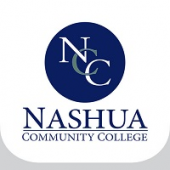
#84: Nashua Community College
Nashua Community College offers an ADN program that prepares students for entry-level nursing roles. It also lays the groundwork for graduates to later pursue their baccalaureate degree. The program offers comprehensive classroom instruction, in-depth scenarios in a state-of-the-art simulation lab, and clinical placements that integrate theory and practice for optimal learning. Class size is limited to 24 students, enabling personalized attention for each individual. Over the past decade, ADN students have averaged an excellent 93% pass rate on the NCLEX-RN licensure exam. Several consecutive classes of graduates have also enjoyed a 100% employment rate.

#85: Bristol-Plymouth Regional Technical School
Bristol-Plymouth Regional Technical School has been in continuous existence for fifty years. The school provides approximately twenty high school technical programs, as well as adult programs in dental assisting, HVAC, and licensed practical nursing. The LPN program has two options: full-time day and part-time evening. Over three terms, students in both tracks will take courses that cover critical areas like growth and development, pharmacology, medical-surgical nursing, and family-centered nursing. Clinical practice, laboratory work, and simulation experiences take place across all terms. Clinical experiences are completed at local sites like Sturdy Memorial Hospital, Catholic Memorial Home, and New Bedford Rehab Hospital. Graduates of BP Tech’s LPN program are extremely well prepared for the NCLEX-PN licensure examination, averaging an extraordinary 99% first-time pass rate over the past decade.
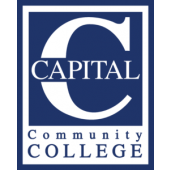
#86: Capital Community College
Capital Community College is one of the few two-year colleges to provide endless opportunities for degree-seeking students to complete an internship with a local business. Besides preparing students for immediate employment after graduation, Capital prepares students to transfer to baccalaureate programs at the University of Connecticut and within the Connecticut State University system. The college’s nursing program offers both a traditional four-semester pathway and an LPN bridge option. The program’s sixty-eight-credit curriculum incorporates the liberal arts, social and biological sciences, and nursing practice. Sample courses include anatomy and physiology, general psychology, literature, and transition to professional nursing practice. Upon successful completion of the program, students are awarded an Associate of Science degree and may sit for the NCLEX-RN licensure examination.
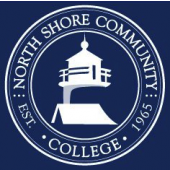
#87: North Shore Community College
North Shore Community College has provided accessible and affordable education to the communities of Northeast Massachusetts for over fifty years. The school conducts a traditional two-year AS degree in registered nursing, a one-year advanced placement LPN-to-RN option, and a ten-month certificate in practical nursing. All three pathways produce excellent student outcomes. For example, NSCC boasted a 95% first-time NCLEX-RN pass rate and an 88% first-time NCLEX-PN pass rate over the past three years. Job placement rates were also excellent during that timeframe, averaging 88% for RN graduates and 84% for LPN graduates. Nursing students can take advantage of the college’s relationships with more than 25 clinical affiliates in the surrounding metropolitan area, including the Danvers Council on Aging, Mass General Brigham Salem Hospital, and Lahey Beverly Hospital. The college also holds baccalaureate nursing transfer agreements with eight institutions including Endicott College, Framingham State University, and Rivier University, providing RN graduates a seamless transition to a BSN degree program.
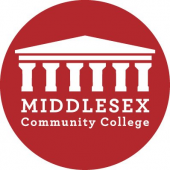
#88: Middlesex Community College
Established in 1970, Middlesex Community College provides more than 80 degree and certificate programs to nearly 11,000 students from all walks of life. MCC is one of the few community colleges to offer an extensive study abroad program with experiences in countries like Greece, Spain, Belize, and China. The college’s Nursing and Allied Health Division conducts a nurse aide certificate program and an associate degree in nursing. The ADN program, which has a 97% job placement rate within six months of graduation, is accredited by the Accreditation Commission for Education in Nursing. Graduates are prepared to sit for the NCLEX-RN licensure examination. Over the past decade, Middlesex Community College’s ADN graduates have averaged a solid 89% first-time NCLEX pass rate.

#89: Montachusett Regional Vocational Technical School
Montachusett Regional Vocational Technical School is the second-largest regional school district in Massachusetts, serving more than 1,400 students. Monty Tech’s LPN pathway is a unique program that allows students to skip the prerequisites. Designed for working adults, this ten-month evening program is fully approved by the Massachusetts Board of Registration in Nursing. Upon completion, students are encouraged to enroll in the LPN-to-BSN bridge program at Fitchburg State University. They are also well prepared for the NCLEX-PN licensure examination. Monty Tech’s LPN graduates have averaged an 89% first-time NCLEX pass rate over the past decade. Once they pass the exam, these newly licensed practical nurses are qualified for immediate employment in the field.
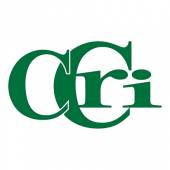
#90: Community College of Rhode Island
Established in 1964, Community College of Rhode Island is the largest community college in New England. The college serves 20,000 students annually with associate degree programs and career training. CCRI offers the only public practical nursing and ADN programs in Rhode Island. Nursing students enjoy realistic on-campus clinical experiences in the Health Sciences Clinical Simulation Laboratory, which is accredited by the Society for Simulation in Healthcare. They also complete off-campus clinical experiences at major local hospitals and healthcare centers. The CCRI nursing programs are accredited by Accreditation Commission for Education in Nursing, and graduates are prepared to sit for their respective NCLEX licensure examinations.
